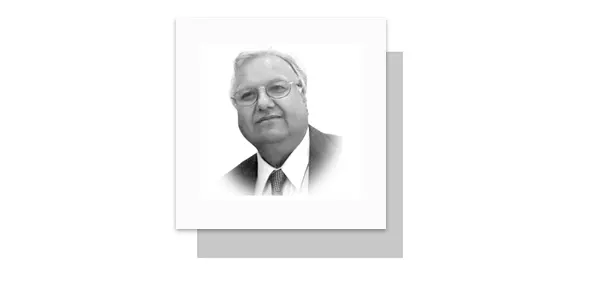A few days ago, I had the opportunity to attend a university convocation and a UNICEF event.
These were truly remarkable gatherings.
Certain moments from the convocation remain etched in my memory—like a woman proudly walking up with her child in her arms or holding her little one’s hand, receiving her degree with a radiant smile of joy.
I’ve witnessed much convocation, but none quite like the one at Alhamd Islamic University, founded by the visionary Dr. Shakeel Roshan in Quetta. Today, the university has expanded with a campus in Islamabad.
While the core mission of the University is to promote education, it does so with a unique approach. The doors of this institution are open to anyone eager to acquire knowledge, but what sets it apart is the ideology that drives it.
We often meet people who express regret that they had to take on family responsibilities from a young age, leaving their education incomplete. Dr. Shakeel Roshan think: why not create an opportunity for such people? Now that they have somewhat settled into their professional lives, they may have the chance to pursue their dreams. Thus, this university has designed its schedule in such a way that people can attend classes alongside their daily responsibilities, write term papers and earn degrees ranging from bachelor’s and master’s to MPhil and PhD. Dr. Shakeel Roshan comes from a business-oriented family and was once interested in politics. He even participated in the 2024 elections at the insistence of some friends. However, his primary passion is now education. With the success of Alhamd University, he is now embarking on a new initiative. There is no reason why this new project shouldn’t also succeed in spreading the light of knowledge throughout Balochistan.
Our friend Dr. Sher Ali is a tireless individual. On the evening of the convocation, he took me along with him to Daman-e-Koh. Noted poet Jaleel Aali and renowned Urdu fiction writer and critic Muhammad Hameed Shahid were already with him. In the pleasant ambiance of Daman-e-Koh, Dr. Shakeel Roshan shared his new vision with us: he plans to establish 300 schools across Balochistan, providing students with free books, uniforms and other essentials. When I asked him about the timeline for this project, before he could respond, Aleem Adil Sheikh interjected: “If Dr. Roshan has spoken about it that means the plan is already in motion. Now you will see its implementation.” May his words come true! Anyone who spreads the light of education in our land and quenches the thirst of knowledge seekers has our full support and prayers. Dr. Shakeel Roshan, in particular, has our unwavering encouragement.
While discussing Alhamd University, I must not forget to mention UNICEF’s commendable efforts in Pakistan. Their initiative can be best understood through a simple question: Who plays the most crucial role in a child’s educational journey? The child, the teachers or the school? UNICEF has answered this question through action. They have launched a program titled “Waaliden Humqadam” (Parents as Partners), with the tagline “From Insight to Impact.” UNICEF’s vision recognizes that parents are the foundational pillar of their children’s education. However, in Pakistan, this pillar is partially fulfilling its responsibilities, leaving gaps in children’s learning. This initiative aims to bridge those gaps. In Pakistan, there are two primary educational models. One caters to the elite and upper-middle-class families, who invest heavily in private education. The other serves those with limited financial means, who rely on government schools.
There was a time when government schools held great prestige in Pakistan, with private institutions being a few. However, in the last three to four decades, expensive private schools have proliferated, making quality education difficult for middle and lower-middle-class families to afford. When global organizations or NGOs launch education programs, they often focus on elite private institutions. But the best aspect of UNICEF’s initiative is its focus on government schools. UNICEF believes that changing societal attitudes is crucial for this effort. Such a transformation can only occur through a large-scale movement. Using modern communication tools, UNICEF has reached six million parents, engaging them in a structured network. This system connects children, parents, teachers, education experts, and UNICEF’s visionary coordinators. In six cities across Pakistan, 13,988 parents have been involved in educational programs through schools, WhatsApp learning programs, and parents-to-parents (P2P) gatherings. This has fostered a sustainable educational community that will continue to support learning for generations to come.
The key figures behind bringing this vision to life include Dr. Ibrahim Farah (Education Manager, UNICEF Pakistan), Elnur Aliyev (Chief, Social and Behavioural Change, UNICEF Pakistan), Ghazala Fareed (Social and Behavioural Change Officer, UNICEF Pakistan), and Faheema Khan (Gender and Development Specialist, UNICEF Pakistan). Our friends at UNICEF are working with the firm belief that when parents, teachers, and educational institutions stand together, academic success is no longer just a dream—it becomes a reality. Recently, as part of this initiative, parents and stakeholders were brought together and asked: “Since joining this program, what changes have you noticed in your child’s educational progress?” Their responses, even in the simplest words, were truly amazing. The enthusiasm of parents and the joy on their faces as they spoke about their children’s achievements was heart-warming. I am deeply grateful to my dear friend, Professor Dr. Tahir Naeem Malik, whose efforts introduced me to this silent educational revolution. Well done, UNICEF!
—This writer is former advisor to the President of Pakistan, author & mass media theorist.
(farooq.adilbhuta@gmail,com)










